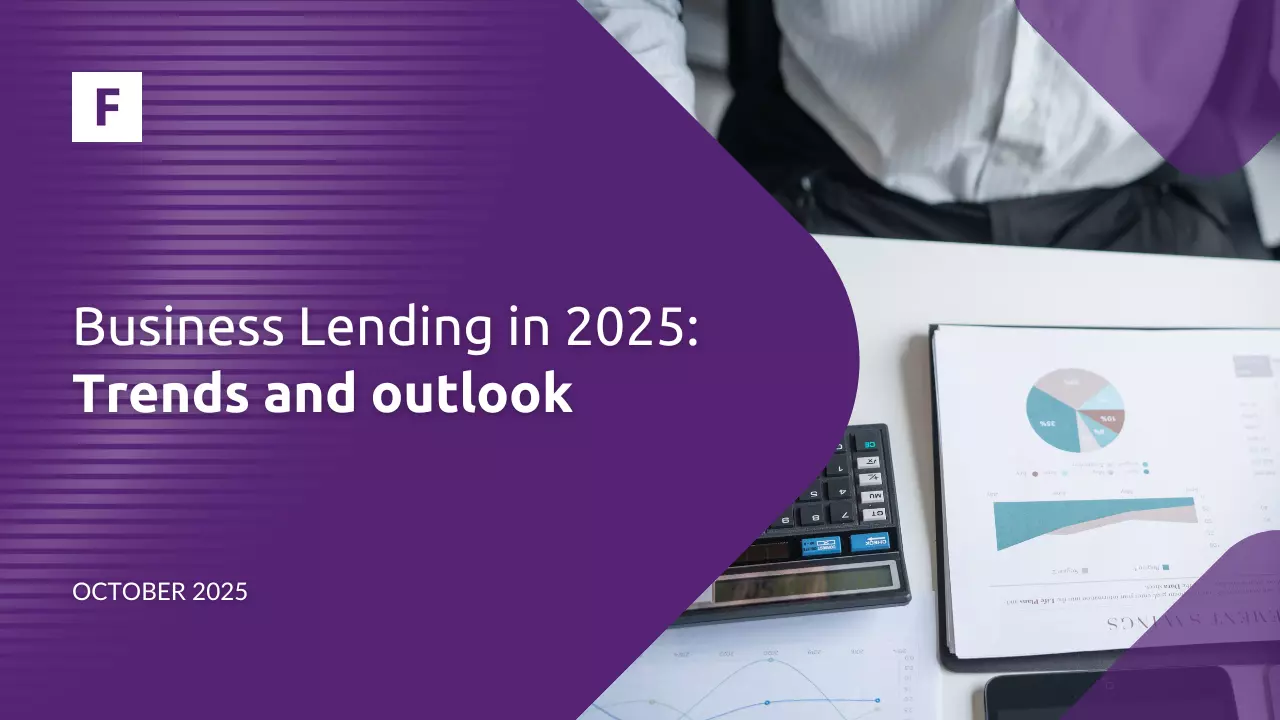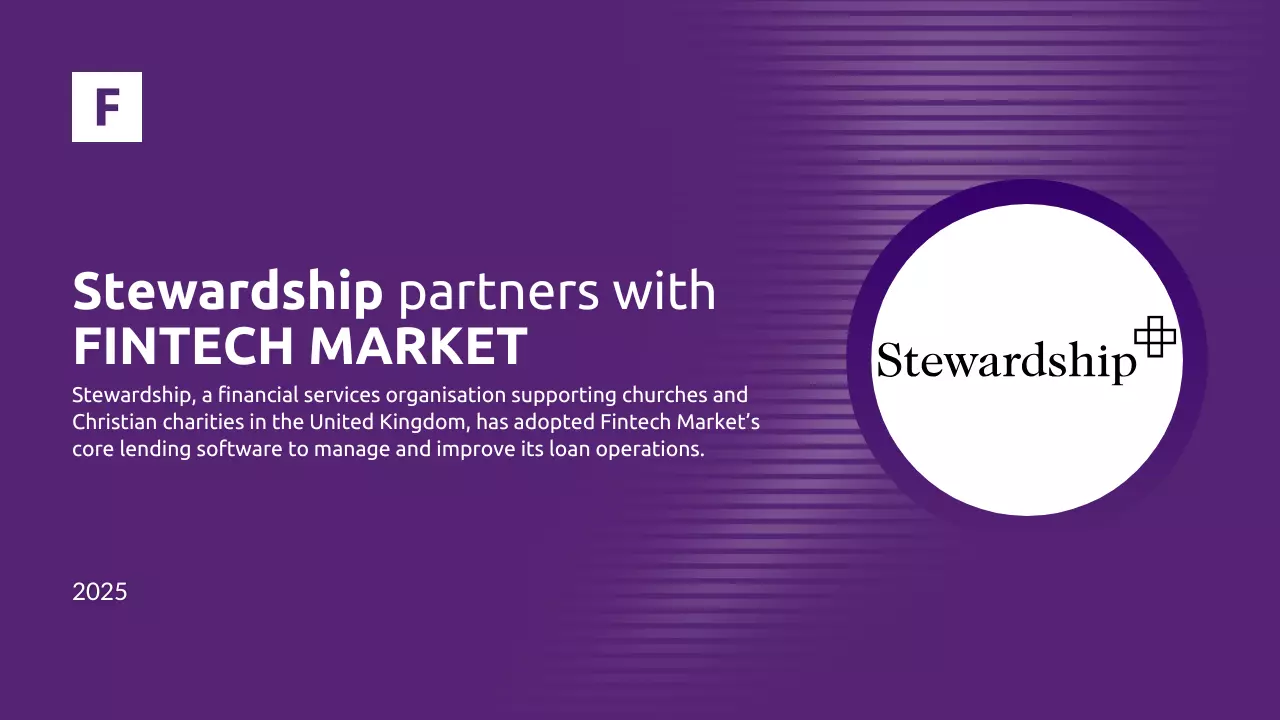Explore the evolution of the global financial services industry, where Fintech has reshaped service delivery and consumption. This article navigates through the pivotal role of Loan Management Systems (LMS) in streamlining loan processes, from origination to risk management, in a sector poised to grow from $5.9 billion in 2021 to $29.9 billion by 2031. With a focus on Fintech Market's SaaS loan management system, learn how lending companies, both new and established, utilize digitalization and automation to simplify, secure, and manage financial transactions effectively.
It is not a secret how the financial services industry has been evolving during the last few years; numerous articles talk about how the industry keeps changing and how fintech adoption is reaching different parts of the world. Even though the industry of Financial services is already big, fintech implementation is just beginning to grow, in South America and African regions. The global financial services market grew from $25848.74 billion in 2022 to $28115.02 billion in 2023, and it will reach $37484.37 billion in 2027 at a CAGR of 7.5%.
Trends in the lending industry
During and after COVID-19, many technological advancements in different industries appeared and are evolving until the present day. In the financial services industry, one service that gained popularity and is expected to keep growing is Digital lending, but why is it so popular? In today's tech-savvy world, the big amount of smartphones and other electronic devices have revolutionized the borrowing landscape.
The emergence of cutting-edge digital lending platforms empowers borrowers to seek loans effortlessly, no matter where they are and without the need to go to a physical branch. The global digital lending market was valued at $12.6 billion in 2022, and is projected to reach $71.8 billion by 2032, growing at a CAGR of 19.4% from 2023, this means currently it represents approximately 10% of the global fintech market industry which was valued at $131.95 billion 2022.
With such an increase in popularity there's the need for easy and quicker technical implementation, that's why also the use of Loan Management Systems (LMS) have been increasing globally. In this article, we will delve into the intricacies of LMS, exploring how it works and highlighting the benefits to digital lending companies. Additionally, we will shed light on how Fintech Market's SaaS solution empowers lending companies with a comprehensive and efficient platform for managing their loan portfolios.
A Loan Management System (LMS) is a software platform designed to streamline and automate all processes involved in managing loans. It provides a comprehensive solution for loan origination, disbursement, servicing, and portfolio management for lending institutions. A LMS simplifies and digitizes the lending workflow, replacing manual and paper-based processes with efficient, automated tasks.
By leveraging technology, LMS solutions enable lenders to handle a higher loan volume, reduce errors, improve risk assessment, and enhance operational efficiency. The global loan management software market was valued at $5.9 billion in 2021 and is projected to reach $29.9 billion by 2031, growing at a CAGR of 17.8% from 2022 to 2031.
How Does a Loan Management Solution Work?
Using this type of software can increase the efficiency of lending operations and facilitate effective loan portfolio management. Lenders can manage the entire loan life cycle more efficiently with these tools that automate and centralize various tasks.
Digital Loan Origination: LMS simplifies the loan origination process by digitizing applications, automating credit assessments, and evaluating borrower eligibility based on predefined criteria. It enables lenders to easily capture and verify applicant information, including financial history and creditworthiness.
Loan Disbursement: once a loan is approved, the LMS handles the disbursement process efficiently. It generates loan agreements, initiates fund transfers, and updates borrower accounts. Lenders can track and manage disbursed loans effectively, ensuring accuracy and compliance. Additionally, there are available different third-party integrations with banks and payment gateways for disbursing the money.
Loan Servicing: The LMS tracks loan repayment schedules, calculates interest and generates repayment reminders for borrowers. It facilitates the collection of regular payments, manages late fees, and ensures the smooth administration of loan servicing operations.
Risk Management: An LMS incorporates solid risk management features, allowing lenders to assess, mitigate, and monitor credit risks effectively with the possibility to integrate with KYC providers available on our system. It provides tools for credit scoring, collateral evaluation, and risk modeling, enabling lenders to make informed decisions and reduce default rates.
Timeline and Statistics: The system provides a consolidated view of the timeline, statistics, and historical data, simplifying information access without extensive data management.
FTMs Loan Management Software
Fintech Market's Loan Management Software is the ideal solution for lenders seeking a reliable and efficient tool. Our core system and loan servicing solution offers flexibility and scalability, making it the ideal choice for various business types. Whether you are a personal and/or SME lending company, a factoring company, a buy-now-pay-later provider, or a neobank, FTM system is designed to cater to your requirements.
One of the key advantages of our loan origination software is that you can launch your business in less time than develop it in-house, the time saving is an important element, in just a few months your products can be up and running. The software is already operating across 4 continents, catering to the needs of millions of customers every month. This global presence not only showcases the scalability and reliability of our system but also highlights our ability to adapt and serve clients in various regions with different requirements and regulations. With FTM, you can easily configure products, flows, and integrations while seamlessly managing payments and debt. Our expanding list of third-party integrations, including authentication providers, KYC integration providers, brokers, infrastructure providers, communication gateway providers, and payment providers, ensure you have all the tools you need to offer seamless services.
Why is Loan Management Software Important for loan servicing?
Embracing technology to streamline lending or other financial services can give companies a competitive advantage in the dynamic and competitive financial industry. It goes beyond enhanced customer experience, efficiency and automation. The most important value is that it builds a solid foundation to support technology, customers, compliance, and risk in a more cost effective and simple manner, which can facilitate financial companies' success in less time.
The integration of financial services like payments, lending, payroll, or insurance by vertical SaaS is creating more value for the company and its customers. An article by Forbes mentions how Vertical SaaS is creating an ecosystem of solutions meticulously crafted for specific industry needs. And since it is an all-in-one solution, customers do not need to handle multiple tools.
➡️Use cases from our clients: Danabijak - Hoovi
Enhancing Lending Processes with Cloud Based Solution
The lending process, a critical component of financial services, has greatly benefited from the integration of loan origination technology. Today, loan servicing enables companies to manage complex financial products with greater ease. A sophisticated loan management platform, equipped with advanced loan origination, loan lifecycle and servicing capabilities, ensures that the entire loan process—from initial application to final repayment—is smooth and efficient. This has been particularly impactful in sectors like smarter construction finance and personal loan software, where precision and speed are key.
Empowering Mortgage Lenders with Automation
In the realm of mortgage lending, the introduction of leading mortgage automation platforms has revolutionized the industry. These platforms enable mortgage lenders nationwide to manage loan servicing easier, streamlining their operations and enhancing their overall efficiency. By simplifying incentive compensation management and automating various loan servicing processes, these solutions facilitate a more agile and responsive lending environment.
Streamlining Financial Services with Fintech Solutions
The role of fintech in streamlining lending management cannot be overstated. As financial institutions seek to optimize their operations, the demand for comprehensive loan servicing solution has grown. These solutions, which often include cutting-edge loan origination technology, offer a robust framework for managing diverse lending activities. Whether for a small personal loan provider or a large-scale mortgage lender, these fintech solutions ensure that all aspects of loan management are handled with precision and ease.
Refining the loan process with advanced loan servicing software
The advent of advanced loan servicing software has significantly contributed to the evolution of the lending industry. This innovative software empowers various lending institutions, including credit unions, to streamline their loan process and delivers modern customer convenience. It not only simplifies the loan servicing process but also enhances the overall efficiency of the lending process.
The loan servicing software facilitates smarter construction finance and personal loan software by incorporating technologies that automate critical aspects of the lending process. One such technology event is the emergence of a leading mortgage automation platform. Exclusively designed for mortgage lenders nationwide, this platform helps manage loan servicing easier, simplifies incentive compensation management, and optimizes other loan servicing processes.
Digital transformation in the loan servicing solution
The deployment of loan origination technology has revolutionized the loan management platform – it's redesigned the loan management system making processes efficient and easy to handle. An excellent example is the construction loan manager software that automates and simplifies the construction lending process. This digital lending solution provides significant cost savings due to its automated payment processing capability.
An interesting facet of this evolution has been how these technologies also cater to private lenders, non-banking financial companies, and credit unions. They deliver modern customer convenience by expediting the loan origination, processing, and servicing stages. As customer expectations continue to evolve, more and more businesses are turning to these technologies to stay competitive.
Enhancing Efficiency in Loan Management
Loan origination software has been a game-changer for mortgage lenders, allowing them to automate and streamline lending management. The software captures key data fields, simplifies the process of classifying financial documents, and enables lenders to analyze cash flows more efficiently. It also reduces the dependence on manual processes, thereby reducing the risk of errors and enhancing the overall efficiency.
Lending software has also been instrumental in simplifying and automating the debt collection process. By integrating advanced analytics solution, businesses can now predict and manage loan defaults more accurately. The software also facilitates seamless borrower communication, enhancing the customer relationship management process.
Transforming Debt Management with Digital Lending Platforms
Cloud based solution like a digital lending platform have brought about a transformative change in the way mortgage brokers, loan brokers, and finance companies manage loan portfolios. These platforms not only simplify debt management but also equip lenders with tools to provide virtual legal assistance, thereby saving time and resources.
Modern lending platforms like Fintech Market's Loan Management System and Turnkey Lender support ACH electronic payments, enabling lenders to manage loan repayments more effectively. Moreover, these platforms are cloud-based solutions, making it easier for financial institutions to manage the loan life cycle from origination to closure, irrespective of their location.
Strengthening Customer Service with Innovative Technologies
The integration of technologies like customer onboarding software and customer relationship management systems has significantly improved the service and parts operation in the finance industry. These technologies have made it easier for mortgage office staff to manage client servicing in a mortgage suite, provide top-notch customer service, and keep all the project stakeholders informed about the loan status.
With the built-in software that simplifies money management, mortgage banks, leasing companies, and alternative lenders can now provide value-added services to their clients. These systems offer seamless integration with communication gateway providers and payment providers, ensuring a smooth and efficient money management process.
The Importance of Risk Management software
Risk management is of utmost importance in SaaS software for financial services due to its role in ensuring regulatory compliance, and fraud prevention. By implementing solid security measures, risk management protects companies against financial losses and helps maintain operational strength to ensure the overall stability and security of the credit ecosystem.
Focusing on that matter in FTM we have a solution called , an application that allows the creation of various models for simple decision flows or complicated calculations and scoring options. The solution facilitates the creation of decision-making models through input information and equations, offering flexible field options and smooth integration with existing systems.
Conclusion of the loan servicing software
In conclusion, the Loan Management System (LMS) represents a significant technological advancement in the financial services industry, offering benefits to lending companies. By streamlining and automating loan processes, LMS enhances operational efficiency, reduces manual errors, and enables lenders to manage a higher volume of loan applications. As the financial services industry continues to evolve, using technology like LMS becomes valuable for startups and established companies alike, providing a solid foundation for success while facilitating various financial services.
Interested in a personalised demo?
FTM Loan Management Software provides flexibility and scalability to meet the specific needs of various businesses, making financial operations more efficient and effective. Get in touch or book a demo to know more about our system.
About Fintech Market
Fintech Market (FTM) functions within the loan servicing sector, delivering an all-encompassing SaaS-driven modern lending platform for financial service organizations. This platform covers various aspects, including consumer and mortgage loans, deposits, current accounts, and investments, while also incorporating critical functionalities such as CRM, KYC, risk mitigation, and debt management.
FTM offers their products to neobanks, SME loan providers, leasing company, and buy-now-pay-later providers across the European Union (EU), Mexico, and Indonesia, providing customized solutions to enhance their performance within the lending software market.







